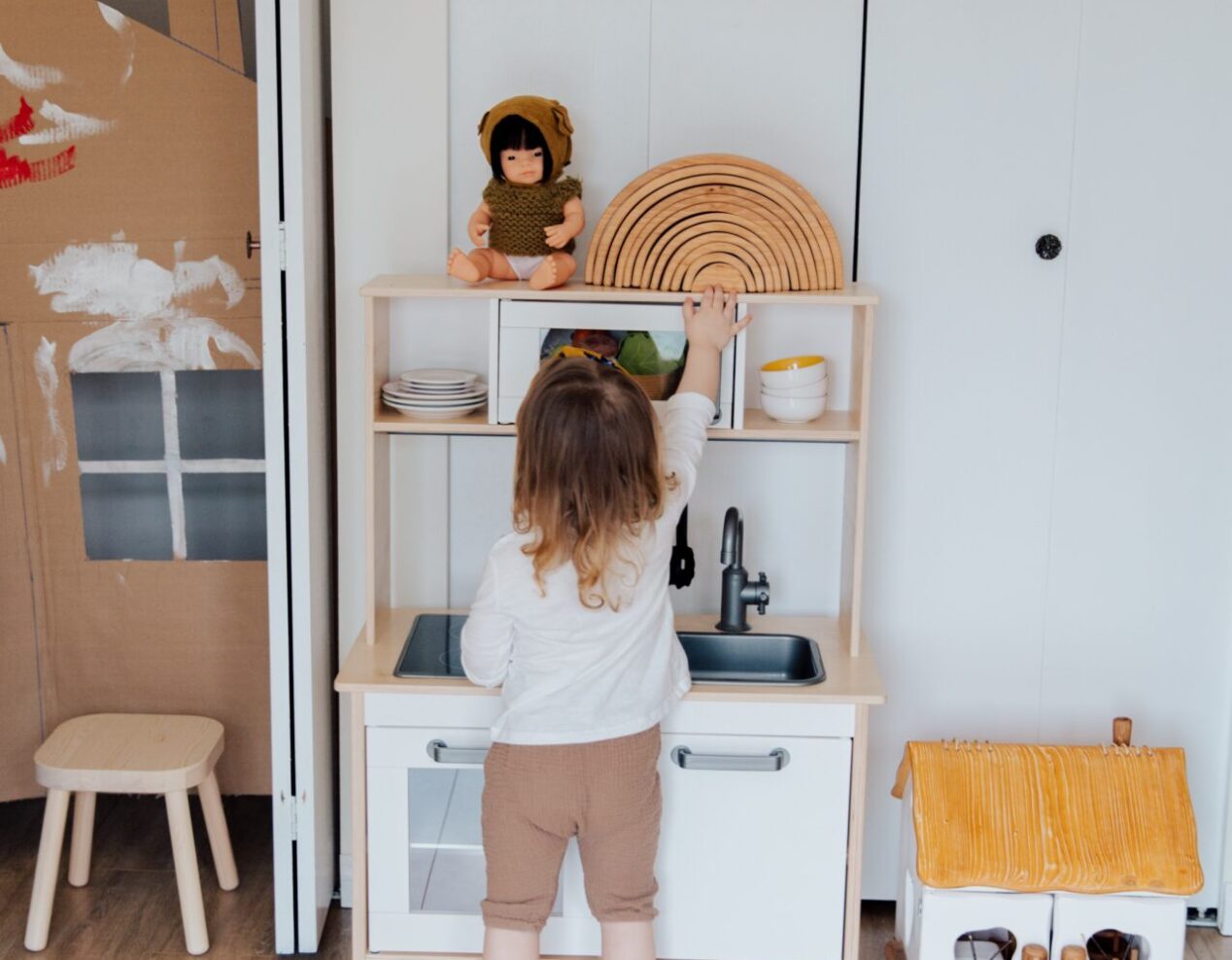My Child Won’t Listen!

- “My 3-year-old son never listens to me when I ask him to do something!”
- “When I ask my 5-year-old daughter to come to the table for dinner, she ignores me. It’s infuriating!”
- “It’s a battle just to get out of the house in the morning – no one ever listens to me.”
We get it. Parenting is tough, and you’re only human! It’s so easy to get frustrated or irritated when someone refuses to listen or cooperate. But, to get your child to listen, you need to know why they aren’t listening.
First, let’s find out why your child isn’t listening in the first place. Then we’ll go into strategies, solutions, and reminders you can use right away.
WHY is my child not listening to me?
There isn’t an easy answer here. Every child is different (yes, even siblings!), meaning you’ll know by observing them at home. Your daughter might be perfectly okay with something your son seems bothered by. It’s easier to be patient and understanding when you know why your child isn’t listening. You’ll be less likely to lose your temper, snap, yell, or take it all on yourself.
Here are some common reasons why children don’t listen:
- Different learning styles. Children learn by doing. You can ask your child to do something over and over again. But, maybe they’re not doing it because they don’t know how! Instead of telling your three-year-old to get off the table, it’ll be more effective to help them off the table. They have then learned what you mean the next time (or 10 times!) you say “Tables are for eating on, the floor is for standing on.”
- Small person in a big world. Think about what your young child sees all day. Feet, shins, legs, bags, the underside of a table, cords on the floor. We forget what kids can see and do at their size – not to mention all the distractions they face! They might not be listening or cooperating because you haven’t caught their attention.
- Desire to explore VS misbehaving. Exploring, touching, tasting, looking, and feeling are all ways that children test boundaries. And this is a huge developmental stage for children to go through! They’re learning trust, limits, consistency, and their place within the family. It’s easy to get that mixed up with misbehaving.
- Reality VS fantasy. For the first few years, a young child’s ability to distinguish between reality and fantasy is almost nonexistent (as they should!). Kids use their imagination to learn, explore, and develop. Yet, it can be frustrating when they’ve got their head in the clouds and don’t seem to register what you’re saying (we get it!).
- Not being age-appropriate. What might seem easy for you might be outside your child’s ability. A three-year-old likely doesn’t have the coordination to get dressed by themselves. A toddler will struggle to quickly put their shoes on because they’re not as fast as us. How many years of practice do you have for getting your shoes on? Try to keep this in mind when you’re asking something of them.
Whatever the reason, this behavior is totally normal. Your child isn’t being “bad” when they’re not listening to you. They’re growing, testing limits, and becoming an autonomous individual. (And trust us, we know it’s frustrating!)
How can I get my child to listen to me?
You’ve got an idea about why they aren’t listening. But what can you do to get them to cooperate? Try out these tips and strategies. We’ve also included some reminders to help you manage it at home.
- Give eye contact. Many of us feel more connected and heard when we share eye contact with the person we’re talking to. This is the same for most children! Practice using eye contact when talking with them so you’re sure you have their attention.
- Get on their level. Bend down to their level and speak respectfully. That way, your child immediately understands that you’re speaking to them. This is also a great way to teach them how to communicate with others.
- Create consistency. For example, write out a morning checklist or a bedtime schedule. Consistency allows your child to know what’s expected of them, which will relieve you in the long run.
- Show, don’t tell. Instead of telling your child “no”, show them what they can do. You’ll help them understand what they should be doing. Otherwise, they can get caught up wondering what your “no” means. For example, instead of: “Don’t hit the dog!” try: “This is how you can pet the dog nicely.”
- Give them time to switch. When you ask your child to do something, don’t expect it to happen right away. They need a moment to switch gears and change what they’re focusing on. Playing a computer game? Give a 10-minute warning that the computer will switch off soon.
Remember that children rarely misbehave on purpose. Our children aren’t intent on going against what we ask of them, nor are they malicious when they don’t listen (though sometimes it can really feel like they’re doing it on purpose!). They’re simply impulsive and persistent when they want to touch and explore. Them not listening to you is nothing personal. Rather, what they want to do overpowers them.
Reminder: you can love them and still get frustrated
It’s totally normal as a parent to get frustrated and snap at your child. If you do lose control, be upfront and honest with them. Tell them how you’re feeling and apologize for your behavior. Tomorrow is a new day! You’ll have plenty of time to put your patience to practice during parenthood.
Take a deep breath or count to 10. Remember: your child is learning. While they aren’t listening right now, they ARE learning lifelong developmental skills. This can take a while, and it’s one of the reasons why parenting can be so challenging!
We know children can really test your limits, patience, and emotional capacity. Check out all our tips and scripts in the Howtotalk app, and learn practical communication skills to help transform the relationship between you and your children. Happy parenting!



